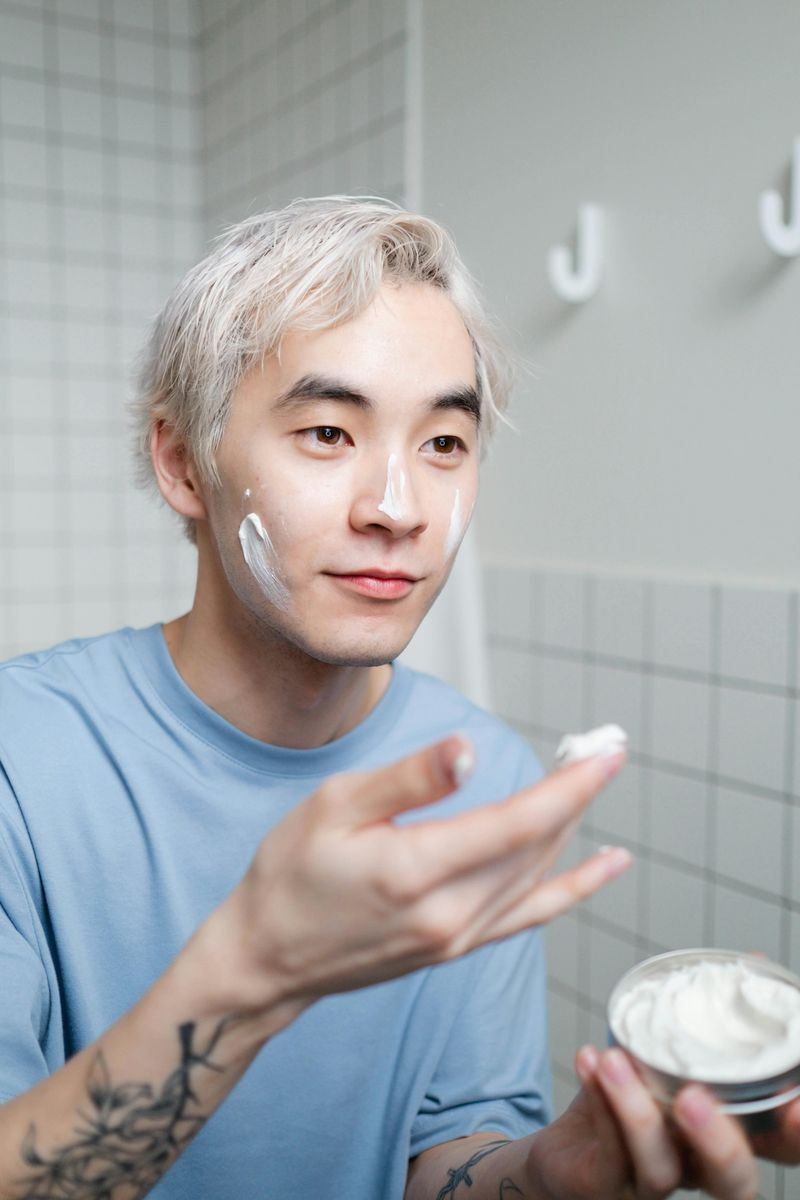11 Times Men Were Criticized Just Because They’re Men

Society often talks about breaking stereotypes, but men still face unfair criticism simply for being male. From showing emotions to choosing certain careers, guys get judged by outdated rules that nobody should follow anymore. This article explores real situations where men have been unfairly criticized just because of their gender, proving that stereotypes hurt everyone.
1. Expressing Emotions

Society sends mixed messages about masculinity and feelings. Men hear they should be strong, yet when they open up about sadness, anxiety, or vulnerability, they’re often told to “man up.”
This double standard creates real harm. Bottling up emotions leads to higher rates of depression, anxiety, and even suicide among men. Research shows that expressing feelings actually builds mental strength, not weakness.
The phrase “man up” suggests that showing feelings somehow disqualifies someone from being masculine. But true strength includes acknowledging when you’re struggling. Emotional honesty takes courage, and everyone deserves support when they’re hurting, regardless of gender. Creating safe spaces for men to share their feelings benefits everyone.
2. Wanting to Be Stay-at-Home Dads

Choosing to stay home with kids should be celebrated, not criticized. Yet men who prioritize parenting or become stay-at-home dads often face judgment from friends, family, and even strangers.
People assume caregiving is only a woman’s role, which is both outdated and insulting to everyone. Fathers are just as capable of nurturing, teaching, and raising children. Studies show that involved fathers positively impact their children’s development in countless ways.
Stay-at-home dads get asked intrusive questions about their career ambitions or finances. Some face assumptions that they’re lazy or unsuccessful. The reality? These fathers made a thoughtful choice about what’s best for their families. Parenting isn’t gendered—it’s about love, commitment, and presence.
3. Being Passionate About Fashion or Grooming

Confidence and self-care aren’t gendered, but you wouldn’t know it from how some people react. Men who care about style, skincare, or self-presentation can be mocked for being “too feminine.”
Taking pride in your appearance shows self-respect. Whether someone enjoys trying new hairstyles, experimenting with fashion, or maintaining a skincare routine, these choices reflect personal values. There’s nothing wrong with wanting to look and feel your best.
Unfortunately, men interested in grooming sometimes face ridicule or questions about their masculinity. This criticism stems from rigid gender stereotypes that limit everyone’s freedom. Fashion and grooming are forms of self-expression available to all people. Judging men for caring about their appearance reveals society’s outdated thinking, not any flaw in the men themselves.
4. Working in Female-Dominated Fields

Nurses, teachers, dancers, and early-childhood educators who are men sometimes get side-eyed or even distrusted. Working in female-dominated fields shouldn’t invite suspicion, yet many men face exactly that.
Male nurses encounter assumptions that they couldn’t become doctors. Male teachers, especially in elementary schools, sometimes face unfair scrutiny around children. These reactions stem from harmful stereotypes that paint men as either less nurturing or potentially dangerous.
The truth? These professions need diverse perspectives and talents. Men bring valuable skills to caregiving roles, just as women excel in traditionally male fields. Questioning someone’s motives based solely on their gender is discriminatory. We should judge professionals by their qualifications, dedication, and character—nothing else matters.
5. Showing Affection Toward Friends

Friendship knows no gender boundaries, yet men showing affection toward male friends often face misinterpretation. When guys hug or express love to their friends, some people read too much into it.
This reveals how narrow society’s view of masculinity can be. Close friendships are essential for mental health and happiness. Research shows that men with strong social connections live longer, healthier lives.
Yet toxic masculinity discourages physical affection between men, creating emotional isolation. A hug between friends is just that—friendship. Men deserve to express care for their buddies without facing jokes or judgment. Breaking down these barriers helps everyone build deeper, more meaningful relationships. Affection is human, not gendered, and friendship should always be celebrated.
6. Talking About Men’s Issues

Male suicide rates, unfair custody rulings, and false accusations are real issues that deserve attention. But men who bring up these topics can be dismissed as “whining” or accused of being “anti-woman.”
Addressing problems facing men doesn’t diminish women’s struggles. Society has room to care about multiple issues simultaneously. Men’s mental health matters, and they face unique challenges that deserve discussion.
The suicide rate for men is significantly higher than for women in most countries. Fathers sometimes lose custody battles despite being loving, capable parents. Dismissing these concerns as complaining prevents real solutions. Everyone benefits when we acknowledge that gender-based problems affect all people. Compassion isn’t a competition—we can support everyone.
7. Rejecting Advances Politely

Everyone has the right to say no, but men who turn down romantic or sexual attention sometimes face harsh labels. Rejecting advances politely, especially from women, can get guys called “arrogant,” “cold,” or worse.
This double standard is problematic. We teach that consent matters and that no means no, yet men get criticized for exercising that same right. Having boundaries doesn’t make someone rude—it makes them honest.
Men might not be interested for countless valid reasons: they’re in relationships, not attracted to that person, focused on other priorities, or simply not looking to date. None of these reasons warrant insults. Respecting someone’s no, regardless of their gender, is basic human decency. Men deserve the same courtesy we expect for everyone else.
8. Liking Traditionally ‘Feminine’ Hobbies

Cooking, yoga, gardening, and art have no gender, yet some people still mock men for enjoying these activities. The idea that hobbies belong to one gender or another is ridiculous, but the criticism persists.
Men who bake get teased. Guys who practice yoga face jokes. Gardeners and artists sometimes hear that their interests aren’t “manly enough.” These reactions limit everyone’s freedom to explore what brings them joy.
Hobbies exist for enjoyment, creativity, and personal growth. Whether someone finds peace in gardening or stress relief through cooking, these pursuits enrich life. Many famous chefs, artists, and athletes are men who excel in these supposedly “feminine” fields. Skills and interests develop through practice and passion, not gender. Everyone should pursue what makes them happy.
9. Standing Up for Themselves

Setting boundaries is healthy, but men who assert themselves sometimes get painted as “aggressive” or “toxic.” In workplaces or relationships, standing up for yourself should be respected, not criticized.
The same behavior that gets women called “empowered” or “strong” can get men labeled negatively. This inconsistency reflects unfair gender expectations. When men express discomfort, refuse unreasonable demands, or advocate for themselves, they’re exercising basic rights.
Not every disagreement is aggression. Not every boundary is hostility. Men deserve to communicate their needs without facing automatic judgment. Healthy relationships and workplaces require that everyone can speak up. Painting all male assertiveness as problematic silences important voices and prevents genuine dialogue. Context matters, and fair assessment means evaluating actions, not making assumptions based on gender.
10. Struggling Financially

Financial struggles affect everyone, but men often face harsher judgment when they’re unemployed or not the main breadwinner. Outdated ideas link masculinity with financial success, creating unfair pressure.
Economic downturns, career transitions, health issues, and countless other factors impact employment. Yet men in these situations sometimes face questions about their worth or capability. Partners, family members, or society might view them as failures.
This pressure contributes to mental health problems and relationship stress. The expectation that men must always be providers is a relic from when women had fewer economic opportunities. Modern relationships work in many configurations. What matters is partnership, communication, and shared goals—not who earns more. Financial circumstances change, but a person’s value doesn’t depend on their paycheck.
11. Being in the Wrong Place at the Wrong Time

Collective blame is never fair, yet men sometimes face it simply for being male. Walking alone at night, sitting near children at a park, or being the only man in certain spaces can trigger suspicion.
This happens because some men have done terrible things, but judging all men based on others’ actions is prejudice. Most men are good people who would never harm anyone. Treating every man as a potential threat creates division and unfairness.
Men notice when people cross the street to avoid them or clutch their belongings tighter. These reactions hurt, especially for men who actively work against harmful behaviors. Fighting bad behavior matters, but so does recognizing individuals. Fair treatment means assessing people by their actions, not stereotyping entire groups. Everyone deserves to exist in public without automatic suspicion.

Comments
Loading…